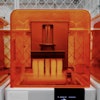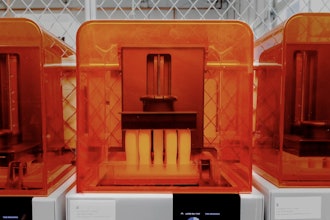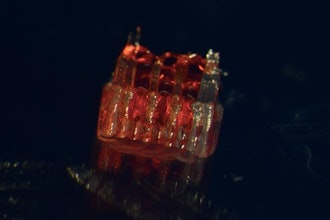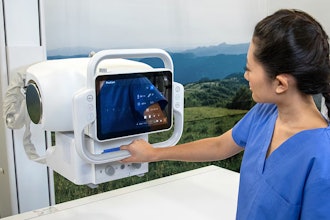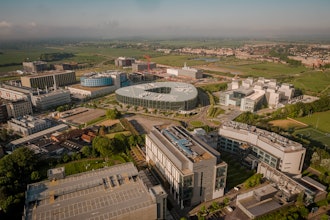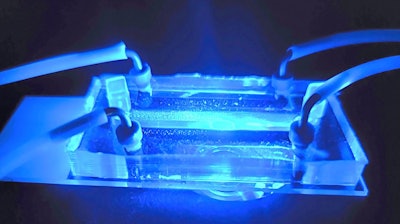
About one in four adults are affected by arthritis, which can wreak havoc on joints by breaking down the cushioning, called cartilage, between bones. Currently, once cartilage deteriorates, there is no way to replace it. However, researchers from the University of Connecticut are turning to the International Space Station (ISS) National Laboratory to try to change that.
Yupeng Chen, an associate professor in the department of biomedical engineering at the University of Connecticut, is leveraging microgravity conditions on the space station to test an innovative DNA-inspired Janus base nanomaterial that may help repair cartilage. The experiment is set to launch on Northrop Grumman’s 20th Commercial Resupply Services mission.
In this fundamental science investigation, which is funded by the U.S. National Science Foundation (NSF), Chen will send engineered cartilage tissue, housed in a Space Tango CubeLab, to space to evaluate how effective a nanoparticle therapeutic is at overcoming cartilage deterioration caused by microgravity. Results from this investigation could lead to improved treatments for patients with degenerative joint diseases.
“We’re testing an injectable solid nanomaterial that can be used to repair damaged cartilage,” Chen said. “If our nanomaterial can overcome the negative impact of microgravity, we can use this not only for artificial tissue engineering in space but also to help patients on Earth regenerate their cartilage.”
Mechanical stimulation (walking, running, etc.) is important to overall cartilage health; without it, cartilage can start to degrade. “On Earth, patients who are immobilized due to injury or disease can lose cartilage over time, and once the tissue starts to degrade, it has limited means to repair itself,” Chen said.
Similar cartilage deterioration has been observed in astronauts in space. Because of the lack of mechanical loading in microgravity, cartilage can degrade over time during spaceflight, making the space station an ideal test bed for cartilage regeneration therapies. Chen and his team want to see how well their nanomaterial therapeutic can repair cartilage in space.
“In microgravity, a unique and challenging environment, we can determine whether our nanomaterials can withstand the adverse effects of space,” said Chen. “The findings can be used to help patients on Earth regenerate their cartilage. Additionally, thanks to the injectability of our nanomaterials, we can reproduce authentic cartilage tissue within microfluidic chips. These cartilage tissue chips can then be used to investigate disease mechanisms and formulate new therapeutics, both on Earth and in space.”


